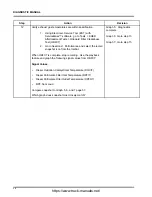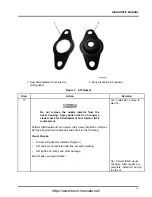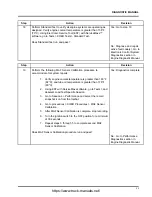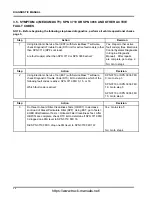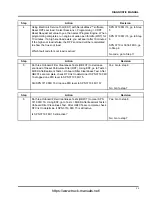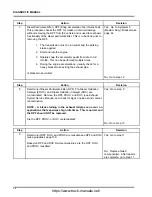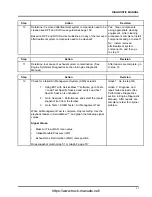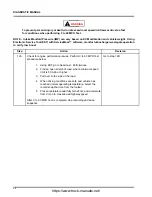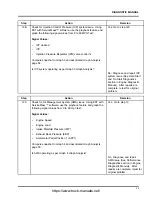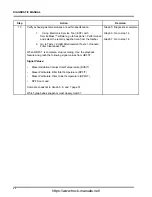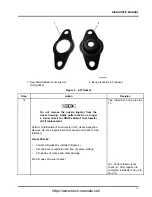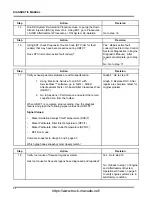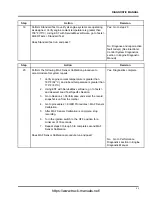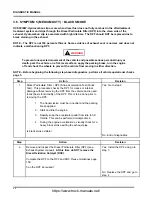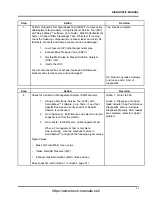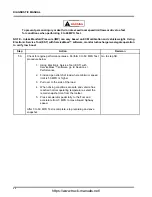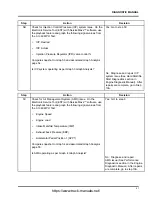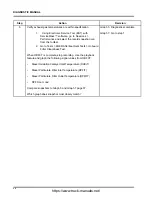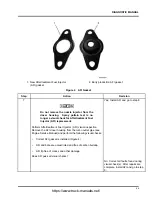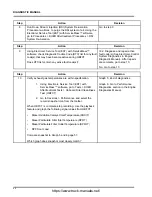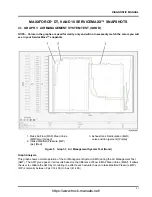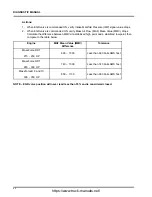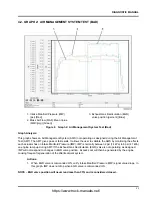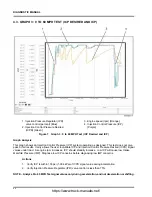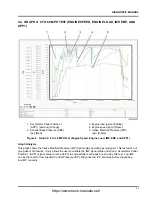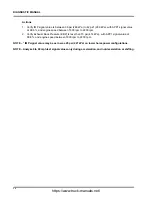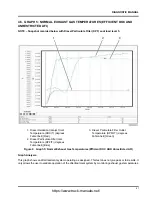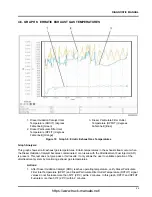
DIAGNOSTIC MANUAL
3.6. SYMPTOM 5 (MEDIUM DUTY) : BLACK SMOKE
OVERVIEW: Hydrocarbon slip occurs when diesel fuel does not fully combust in the aftertreatment
treatment system and slips through the Diesel Particulate Filter (DPF) into the clean side of the
exhaust. Hydrocarbon slip is associated with high idle time. The DPF should NOT be replaced due to
black staining in the exhaust.
NOTE – The DPF is not 100 percent efficient. Some evidence of exhaust soot is normal, and does not
indicate a malfunctioning DPF.
WARNING
To prevent unexpected movement of the vehicle and possible serious personal injury or
death, park the vehicle on a flat, level surface, apply the parking brake, turn the engine
off and chock the wheels to prevent the vehicle from moving in either direction.
NOTE – Before beginning the following step-based diagnostics, perform all vehicle operational checks
page 5.
Step
Action
Decision
1
Diesel Particulate Filter ( DPF) Snap Acceleration Test (Quick
Test). This procedure checks the DPF for cracks or internal
damage without removing the DPF from the vehicle and is used
to test basic functionality of the DPF. This is to be done prior to
removing the DPF.
1.
The transmission must be in neutral and the parking
brake applied.
2.
Start and idle the engine.
3.
Rapidly snap the accelerator pedal from idle to full
throttle. This can be performed multiple times.
4.
During the engine accelerations, visually check for a
heavy black smoke exiting the exhaust pipe.
Is black smoke visible?
Yes: Go to step 2
No: End of diagnostics
Step
Action
Decision
2
Remove and Inspect the Diesel Particulate Filter (DPF) (see
Exhaust System manual).
At this time do NOT remove the
Diesel Oxidation Catalyst (DOC).
Compare the DPF to the DPF and DOC Reuse Guidelines page
159.
Can the DPF be reused?
Yes: Install the DPF and go to
step 3
No: Replace the DPF and go to
step 4
44
https://www.truck-manuals.net/

